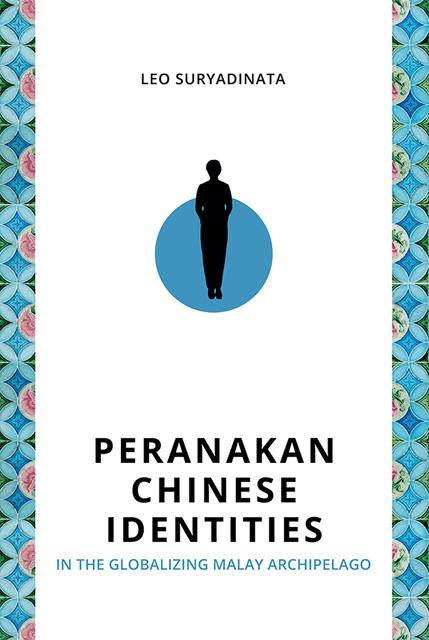Book contents
- Frontmatter
- Contents
- Preface
- Acknowledgements
- Part I Regional Dimensions: Indonesia, Malaysia and Singapore (IMS)
- Part II Focusing on Indonesia
- Appendix 1 The Prospects of the Peranakan Community at the Age of Globalization, by Tan Ta Sen
- Appendix 2 Some Books on the Peranakan Chinese Published between 2007 and 2021
- Bibliography
- Index
- About the Author
13 - Peranakan Chinese Politics and Decolonization in Indonesia
Published online by Cambridge University Press: 01 September 2023
- Frontmatter
- Contents
- Preface
- Acknowledgements
- Part I Regional Dimensions: Indonesia, Malaysia and Singapore (IMS)
- Part II Focusing on Indonesia
- Appendix 1 The Prospects of the Peranakan Community at the Age of Globalization, by Tan Ta Sen
- Appendix 2 Some Books on the Peranakan Chinese Published between 2007 and 2021
- Bibliography
- Index
- About the Author
Summary
Introduction
It is important to understand the Peranakan Chinese community during the era of decolonization as it helps us understand their post-independence position. Much of the post-independence development, in fact, had its basis during the era of decolonization. Let us first look at the colonial period, primarily from the twentieth century towards the end of colonial rule.
Pre-World War II Peranakan Politics
Peranakan Chinese got involved in politics during the Dutch colonial period. However, initially there was only a rise of Chinese cultural nationalism rather than Chinese political nationalism. The latter was symbolized by the establishment of the Tiong Hoa Hwee Koan (THHK, 中华会馆), a pan-Chinese organization that aimed at reforming Chinese Peranakan customs through the teachings of Confucius. As some Chinese are required to understand Confucianism, THHK was first established in Jakarta and later in almost every town in Java and the Outer Islands. It was only later that Sun Yat Sen’s revolutionary movement impacted the Chinese in Indonesia through the organization of Soe Poh Sia (Shu Bao She, reading clubs, 书报社). The totoks were ardent supporters of the revolutionary movement but it was only later that the Peranakan Chinese were also influenced. Leading this Chinese nationalism was Sin Po, a Peranakan Chinese newspaper in Java which was first published in 1910. It later developed into a group which symbolized Chinese nationalism. It even organized the Peranakan Chinese to go against the Dutch subjectship (Nederlandsch Onderdaanschap) and Peranakan Chinese participation in the Volksraad (the colonial parliament which had very limited power). Basically, the Sin Po group was against Dutch colonialism.
However, the increasing number of Dutch-educated Peranakans led to the formation of Chung Hwa Hui (CHH, a Chinese organization) in 1928 in Semarang, a town that was Dutch East Indies-oriented. Politically, the CHH was also oriented towards the colonial power. Semarang at that time was the headquarters of Oei Tiong Ham, the largest Chinese company in Indonesia then. Other Peranakans, many of them journalists and lawyers, disagreed with the political stand of the CHH, eventually established Partai Tionghoa Indonesia (PTI) in Surabaya in 1932 that supported Indonesia’s independence.
- Type
- Chapter
- Information
- Publisher: ISEAS–Yusof Ishak InstituteFirst published in: 2023

